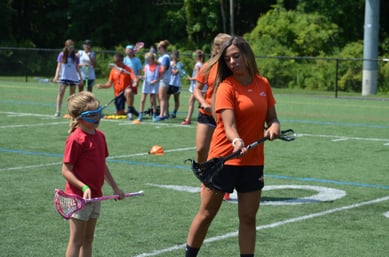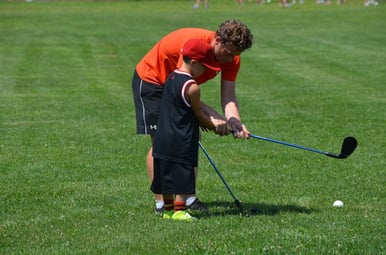 The lessons learned in youth sports are more than just physical. The mental challenge presented by many sports can do wonders for the minds of young people.
The lessons learned in youth sports are more than just physical. The mental challenge presented by many sports can do wonders for the minds of young people.
Depending on what sports your child chooses to play, there will likely be a variety of specific skills that they need to learn in order to excel in that sport. Beyond basic athletic movements like running and jumping, many sports that kids love to play require additional skills like throwing, catching, swinging, kicking, and more. While they might not grow up to be a professional athlete in their chosen sport, the process of learning these skills is something that will likely pay off for years to come.
The classroom setting at school is where kids will do most of their learning. Not only will they learn vital skills such as reading and math, but they will also learn to grasp more complicated concepts later in life. Intelligence is not only measured by what a person knows, but also their capacity for learning new concepts. The more capable a child is of processing information, the easier school will be as they move through grades and into college.
However, not all learning has to take place in the classroom. The same effect can be achieved by learning a sport-specific skill from a coach on their team. For example, kids who participate in basketball have to learn a variety of skills including proper shooting form, passing technique, defensive fundamentals, and more. As they progress in the sport, coaches will provide them with instruction as to how they can improve their mechanics with something like shooting a basketball. Processing that information, and then translating it into how they shoot the ball, is a developmental process that will help them succeed.
As kids develop and progress in their respective sports, the tactical and strategic part of the game becomes more important since the basic technical skills are being improved but no longer new to them.
Kids conditioned with learning skills from sports not only use their minds to process the coaching they receive, but they also have the ability to get instant feedback and results that prove they are improving. If a child is having troubleshooting free throws and is helped by a coach, they can quickly see the fruits of their labor when more of their free throws start going through the hoop. This is one of the countless possible examples of how a child can learn how when they are participating in any number of different sports.
Too many people have the impression that sports are only good for physical exercise and for burning off the energy in young kids. In fact, there is a profound mental component to sports, and the lessons that are learned can be on par with those that are learned inside of a regular classroom. By engaging your children in the sports they are passionate about, you will be giving them an opportunity to expand their mental capacity beyond what they receive during the school day.










.png)
.png)
.png)
.png)